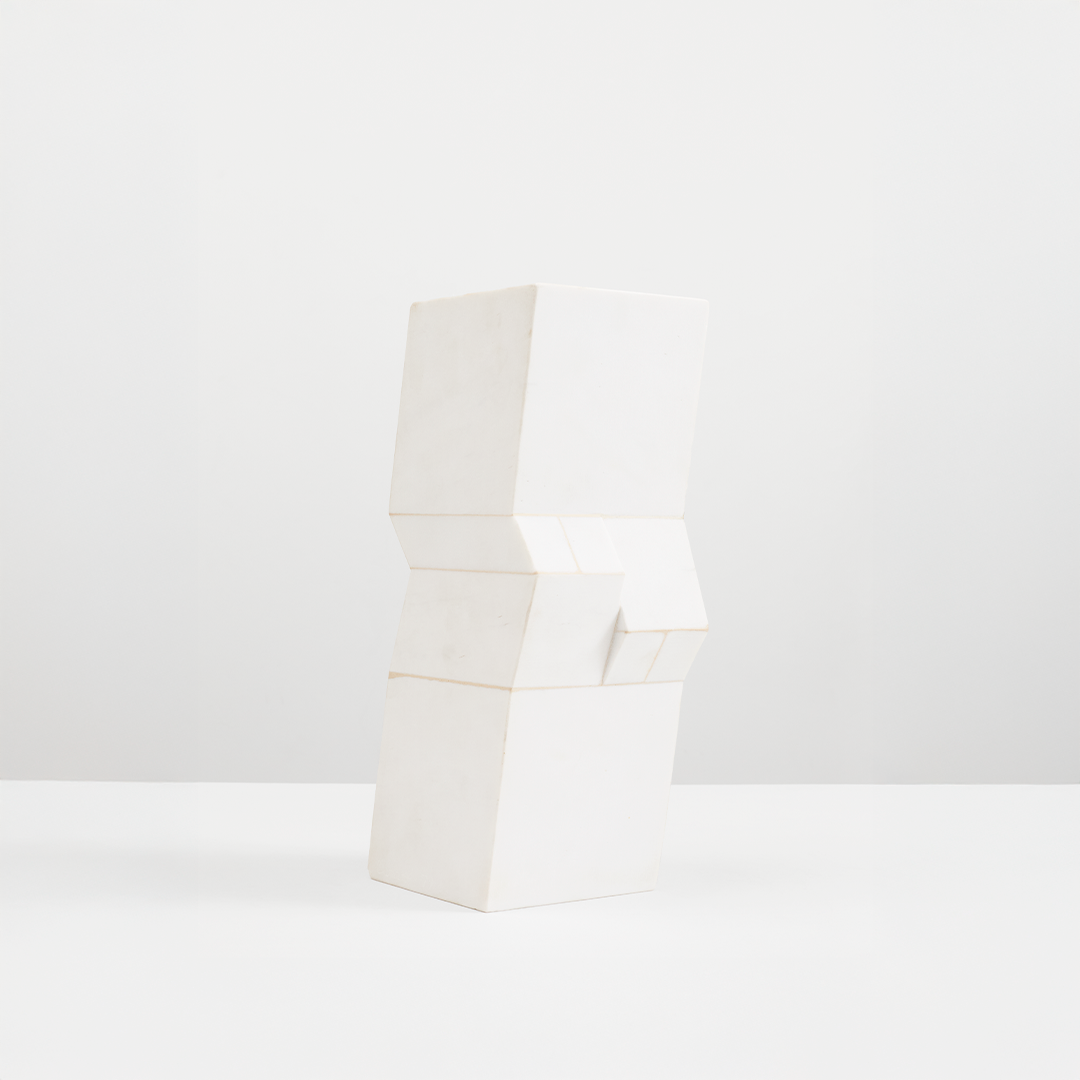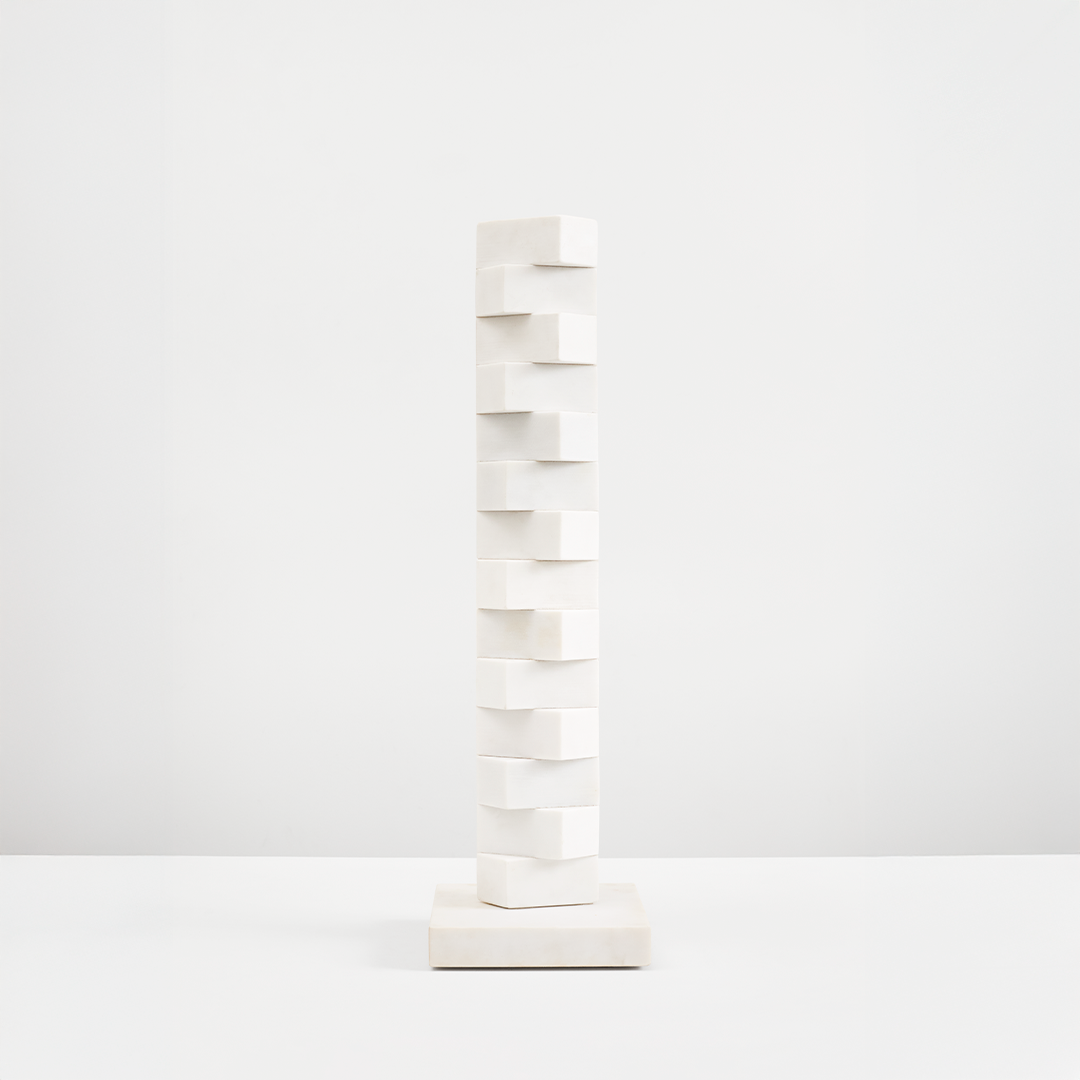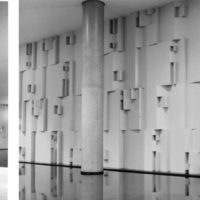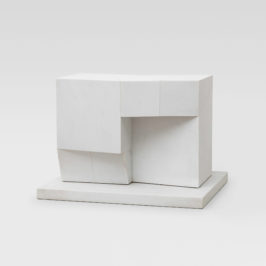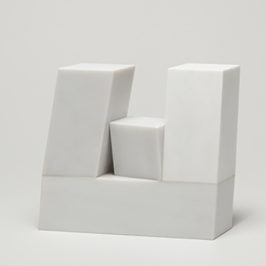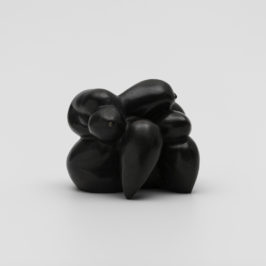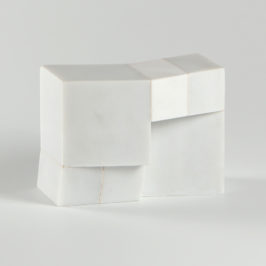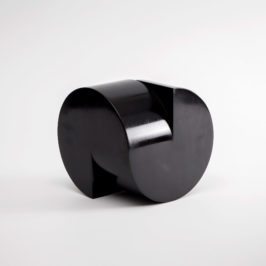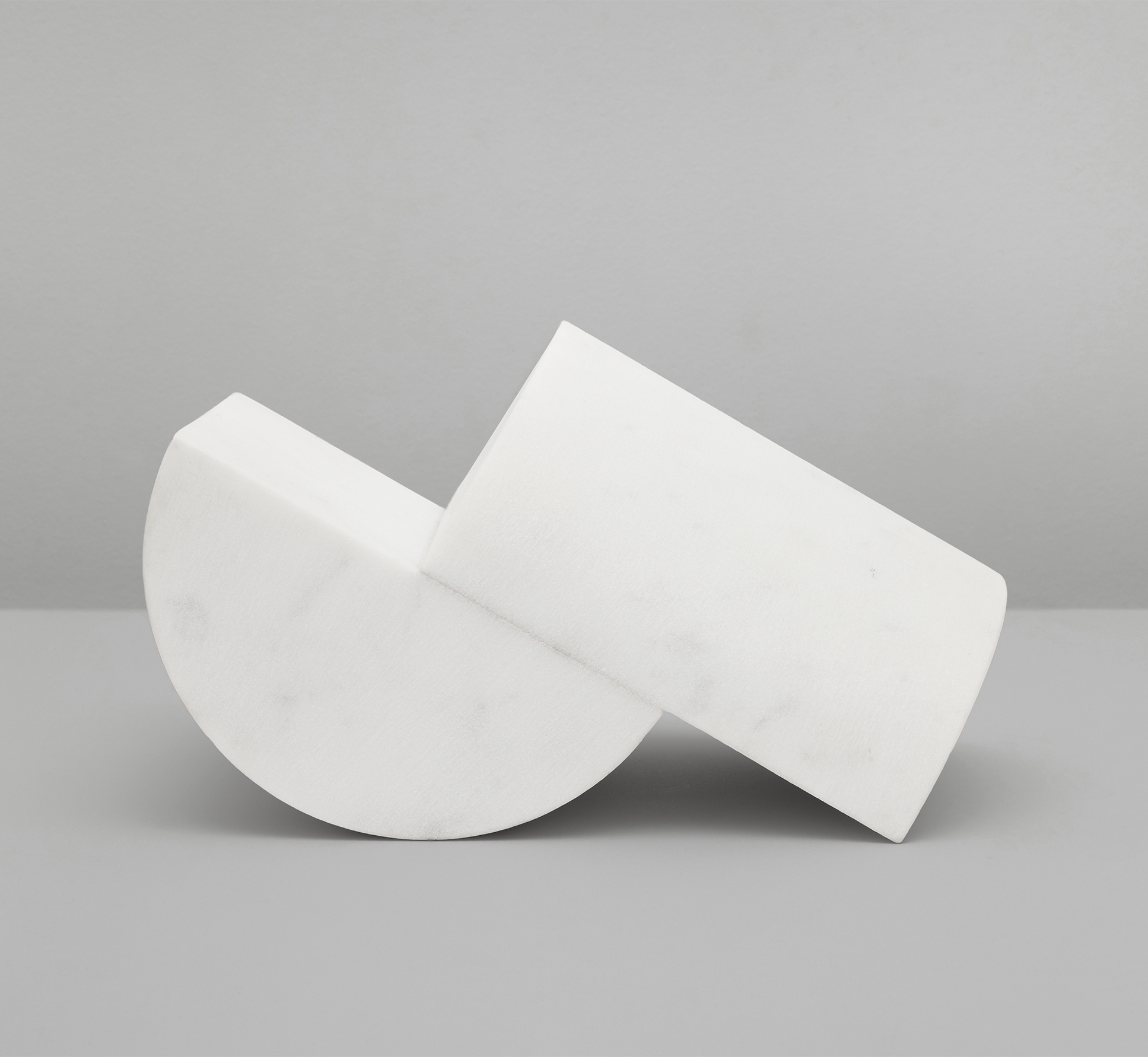
Available Works
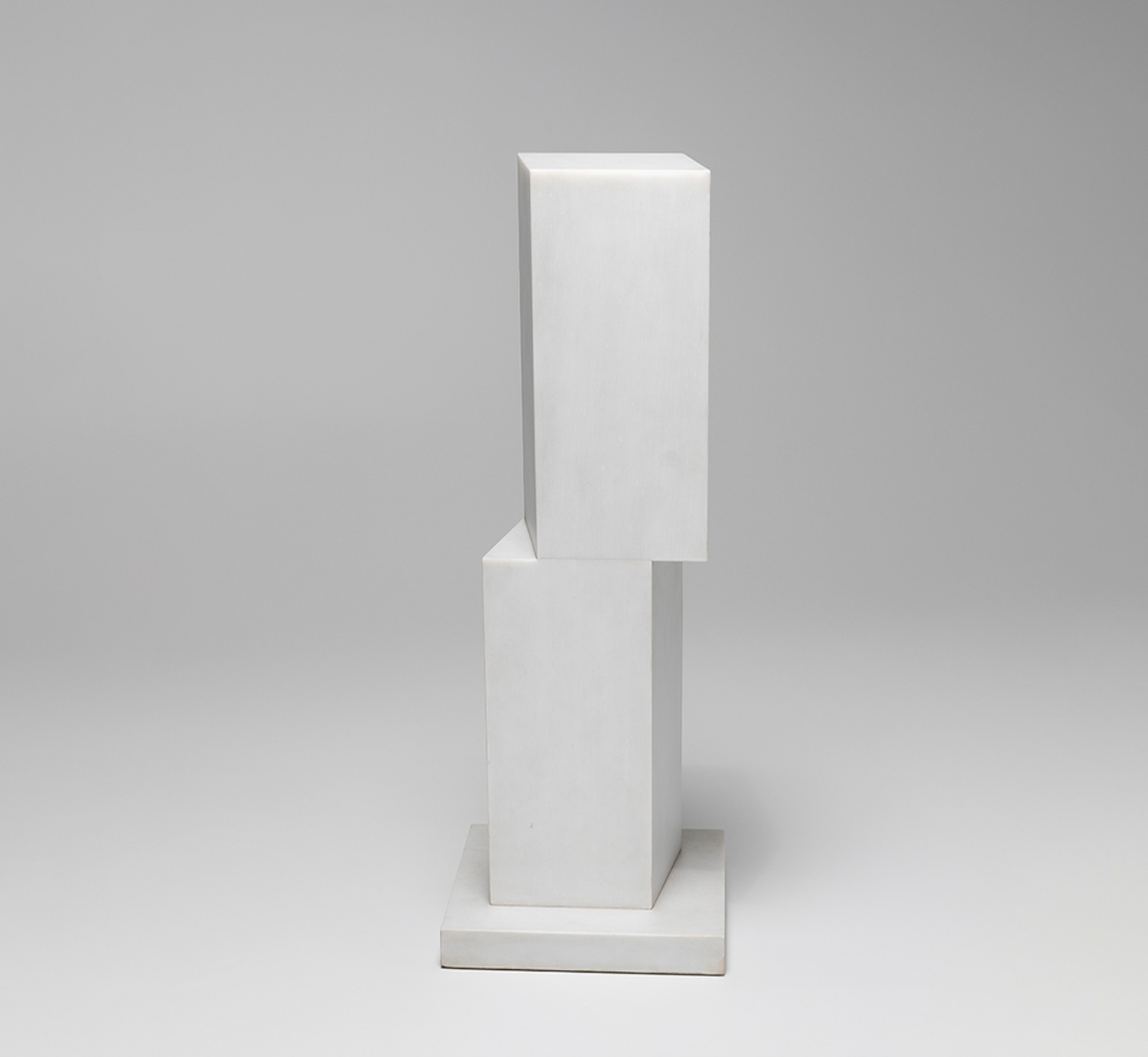
sergio camargo_ untitled_1973

sergio camargo_ untitled (#458 a) _ 1979
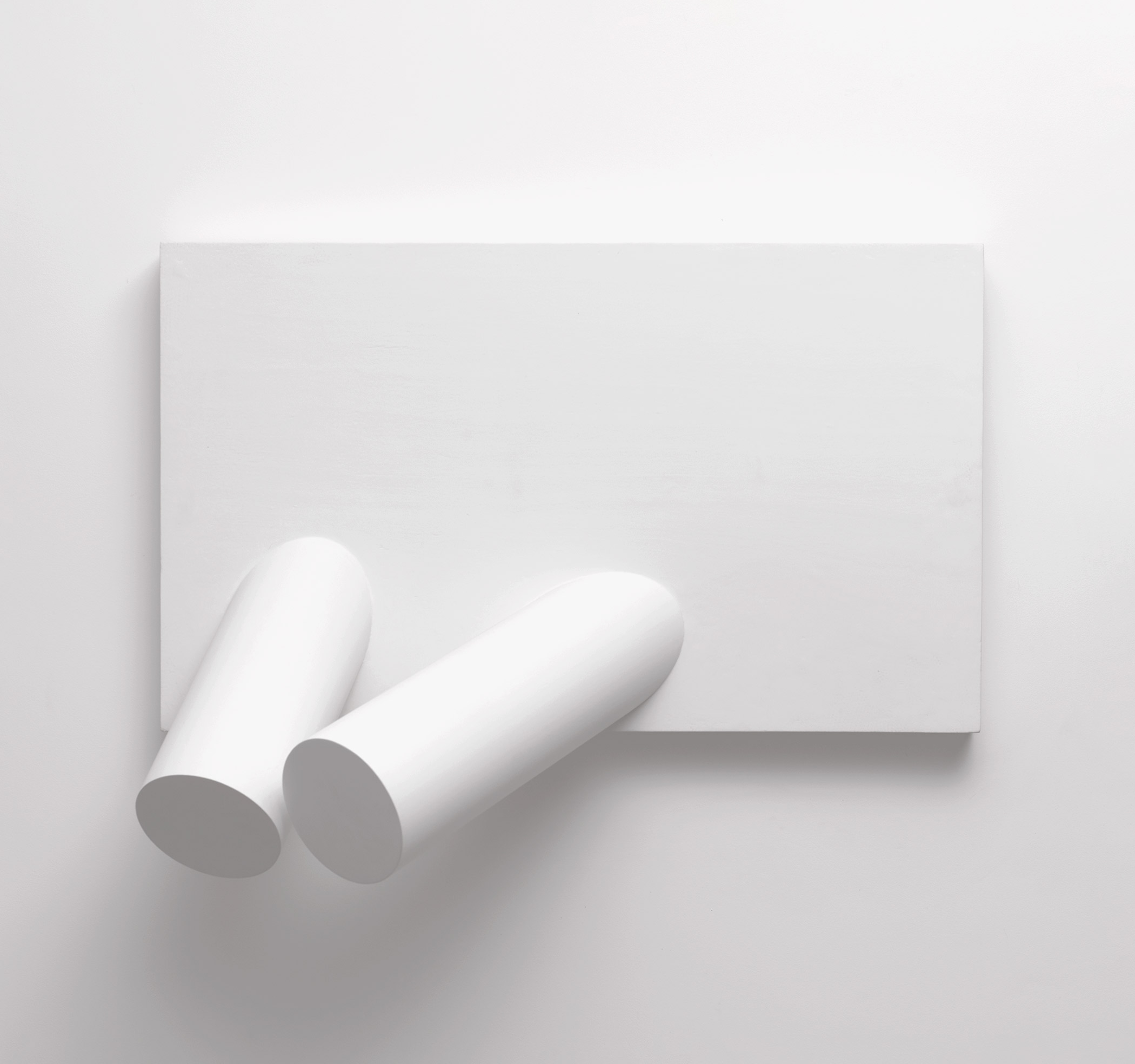
sergio camargo untitled (# 303 b) _ 1979
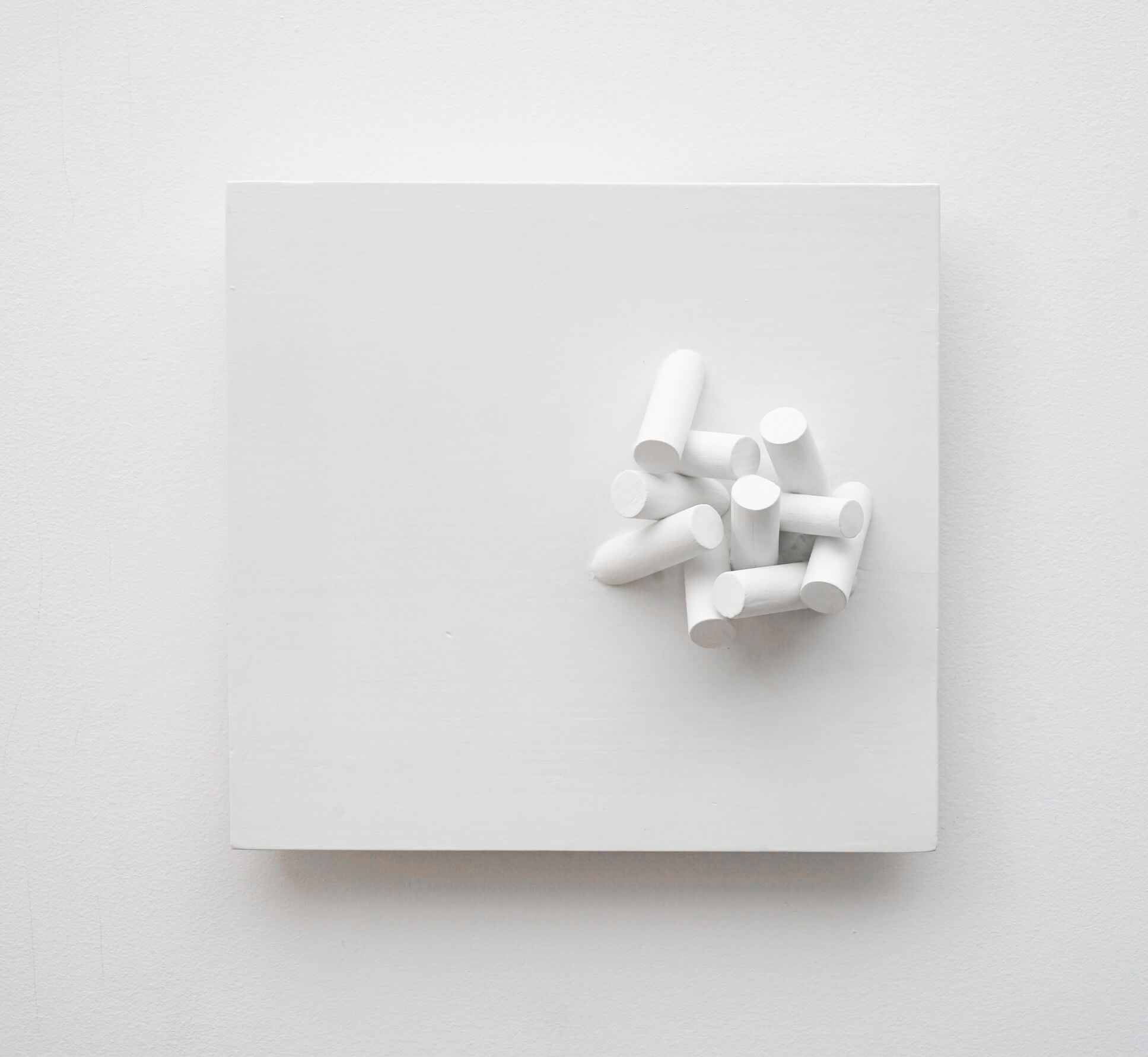
sergio camargo_ untitled _ 1968
Biography
rio de janeiro_ brazil_ 1930 – 1990
www.iacbrasil.org.br/artista/sergio-camargo
Sergio Camargo is considered one of the most original Brazilian sculptors associated with the constructive art movement, even though he never formally joined its groups or movements. Far from being purely rationalist, his sculptural work emanates a certain organicity, a result of combining a limited number of geometric volumes like cylinders, cubes, and rectangles. This approach adheres to a principle of “empirical geometry,” as defined by the artist himself. In his three-dimensional compositions, the systematic joining of geometric forms does not prevent a constant movement of rupture and rearticulation, animated by the play of light on the volumes. In 1963, he began the “relevos” (reliefs) series, which he worked on productively for about ten years. From the 1970s onwards, Camargo began to use marble almost exclusively, whose materiality reacts to light more forcefully, more emphatically revealing the dynamic aspect of his compositions.
He began his art studies at the age of sixteen at the Altamira Academy in Buenos Aires with Emilio Pettoruti and Lucio Fontana. In 1948, he traveled to Europe, where he took a free course in Philosophy at the Sorbonne in Paris and was influenced by the works of Constantin Brancusi, Georges Vantongerloo, Hans Arp, and Henri Laurens. Between 1961 and 1973, he attended classes in the Sociology of Art with Pierre Francastel at the École Pratique des Hautes Études. During this period, he worked at his studio in Malakoff, Paris, and with the Soldani studio in Massa, Italy. At the end of 1973, he returned permanently to Rio de Janeiro, where he began building his studio in the Jacarepaguá neighborhood.
In addition to Brazil, Sergio Camargo earned great respect on the international circuit, participating in solo and group exhibitions and creating important works for public spaces, such as the Ministry of Foreign Affairs building (Brasília); the Banco do Brasil in New York (USA); the Faculty of Medicine in Bordeaux (France); and Praça da Sé (São Paulo). His works are held in national and foreign museums and are part of prestigious private collections. In 2000, on the tenth anniversary of his death, Sergio Camargo gained a permanent visitation space at the Paço Imperial in Rio de Janeiro, with the reconstruction of his Jacarepaguá studio. Raquel Arnaud has represented the artist since 1975 and has been responsible for the Sergio Camargo Estate since 1990.
Exhibitions
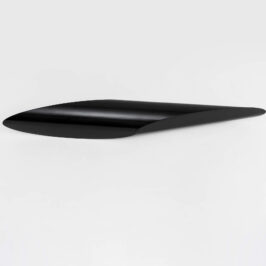
sergio camargo_Ethics and Aesthetics
29 mar-17 may_2025
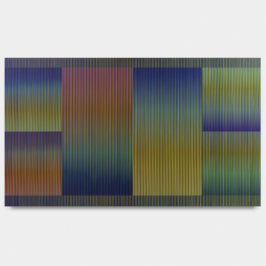
french connection
oct 27 - dec 13_2012
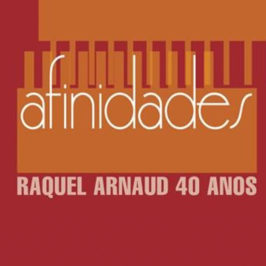
afinidades- raquel arnaud 40 anos
mar 19 - may 04_2014



